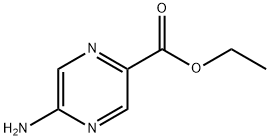I’m confused about NH3’s role. 1. Is ammonia a base or an acid? 2. How does it behave in water? 3. Can it accept or donate protons? 4. What reactions demonstrate its acidity or basicity? Would appreciate clarification!
Is ammonia (NH3) considered a base or an acid in chemical reactions?
Related Encyclopedia

- 12408-02-5
- H2
- 2.01588
- All (0)
- China (0)
- (0)

- 14014-86-9
- H3I3N2
- 411.75100
- All (0)
- China (0)
- (0)

- 26893-20-9
- C10H5Cl2NO3
- 258.05800
- All (0)
- China (0)
- (0)

- 17778-88-0
- N
- 14.00670
- All (0)
- China (0)
- (0)

- 7727-37-9
- N2
- 28.01
- All (2)
- China (2)
- (2)
- 134661-75-9
- N20
- 280.13400
- All (2)
- China (2)
- (2)

- 7664-41-7
- H3N
- 17.03
- All (8)
- China (5)
- (8)
- 108703-53-3
- C34H34N2O6+
- 567.65100
- All (0)
- China (0)
- (0)

- 77944-79-7
- C3H8O3
- 92.09
- All (0)
- China (0)
- (0)

- 212141-54-3
- C20H15ClN4
- 346.81
- All (0)
- China (0)
- (0)
Related Products More >
-
- 87-90-1
- CNY Request For Quotation
-
- 7664-38-2
- CNY Request For Quotation
-
- CNY Request For Quotation
-
- CNY Request For Quotation
-
- CNY Request For Quotation
-
- CNY Request For Quotation
-
- CNY Request For Quotation
-
- CNY Request For Quotation




Classification
In Brønsted-Lowry terms, NH3 acts as a base by accepting protons.
Industrial Importance
This property is exploited in catalysis, synthesis of fertilizers, and chemical intermediates.
Recommendations
Chemical engineers use NH3’s base characteristics in designing reactors and processes.
Clinical Relevance
This basicity affects NH3’s role in biological nitrogen cycles and potential toxicity.
Implications
Medical professionals monitor NH3 levels in patients with liver dysfunction due to its biochemical effects.
Advice
A deep understanding of NH3’s acid-base nature supports clinical diagnostics and treatment planning.